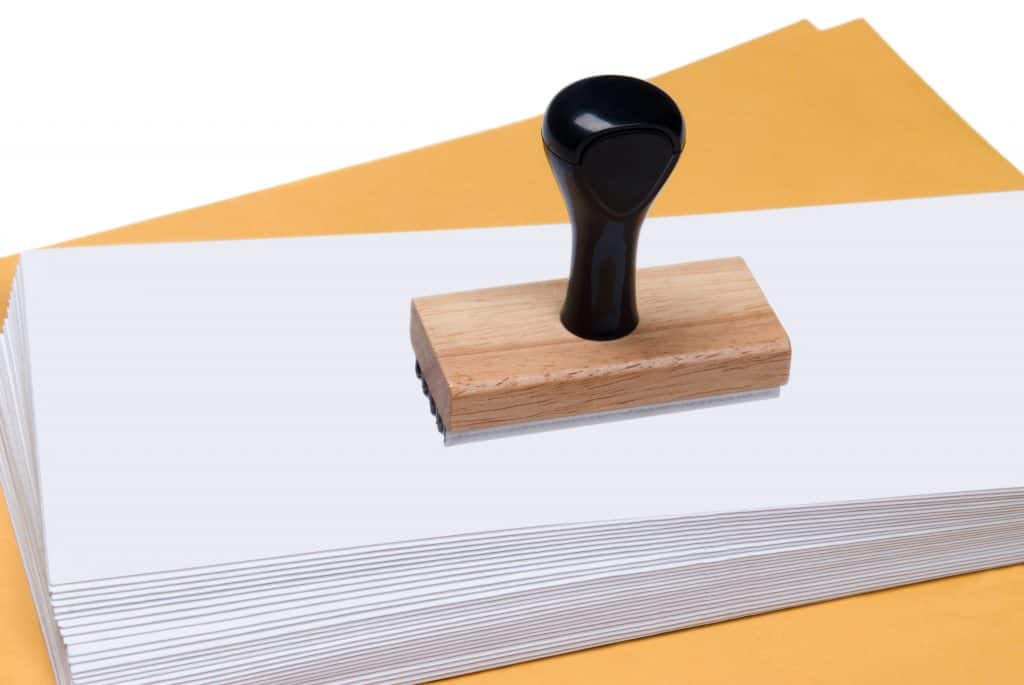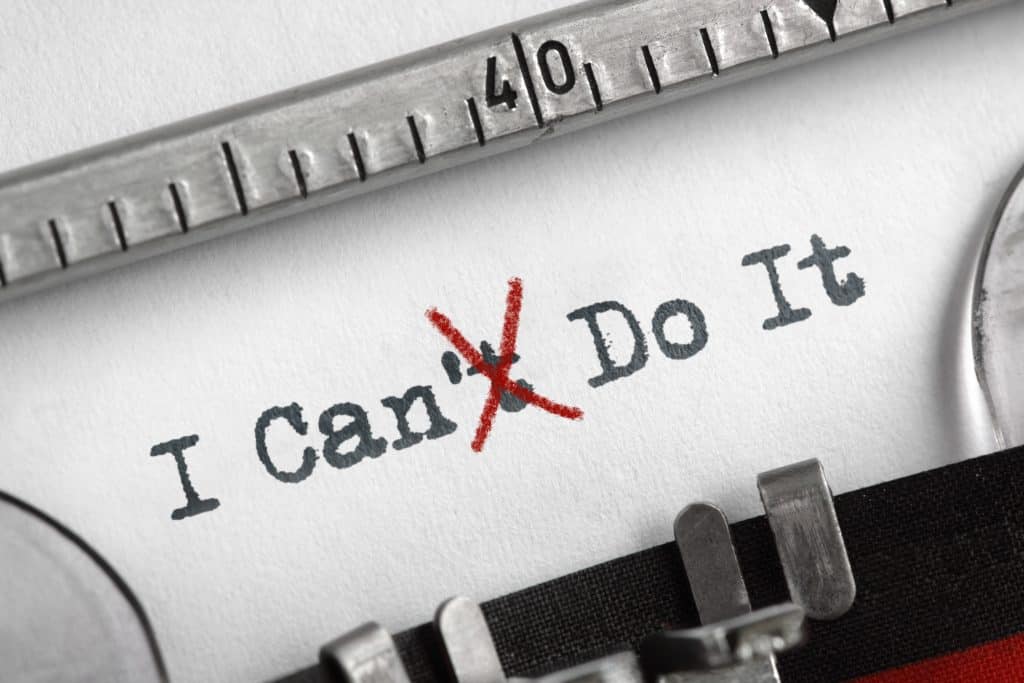The VA Denied my PTSD Disability Claim, What Do I Do Now?!

The reality of the situation is that the VA many veterans have been denied for their PTSD Disability claim even when they have medical documentation for it!
It’s sad but true, many deserving veterans are denied their legitimate claims for disability compensation. Being denied after putting in hard work, time, emotional and mental efforts into filing a claim can be defeating and exhausting. It can be hard to convince yourself to get up and try again.

But don’t give up! Even though it feels hopeless, a denial is not the end of the journey!
The 4 Main Reasons the VA Denied Your PTSD Disability Claim
Even though PTSD is one of the most common conditions suffered by veterans, the VA has a history of denying many of the claims veterans submit to get benefits for their PTSD disability.
There are four main reasons your claim for PTSD may have been denied. Just one of these can be enough to have your claim denied, but it’s possible that your claim qualified under more than one.
>>>TAKE OUR FREE PTSD RATING TEST TO FIND OUT IF I QUALIFY!<<<<<<
1. Insufficient Evidence
This is one of the main reasons a PTSD disability claim may be denied. In order to win your PTSD claim for disability, you will need to collect enough evidence to prove your claim beyond a reasonable doubt.

Evidence you will want to submit are buddy letters, NEXUS letters, and all of the medical records you can gather, both private and military.
It’s common for veterans to trust certain services to file their PTSD claims, but many of those services are run by people who are unqualified to truly help you. It’s not uncommon for them to fail to submit enough evidence in support of your claim. If this has happened to you, don’t use the same service again – and reach out to see if we can help!
Two questions to ask about your denied VA claim, do you have medical evidence to prove your disability and do you have proof of service connection, nexus? If not, get started with these two things!
>>>>>>5 DOCTORS WHO WRITE NEXUS LETTERS<<<<<
2. Problems with Eligibility
Did you receive a dishonourable discharge? This would result in immediate denial of your PTSD claim. The status of your discharge is essential to winning a claim. Click here to work on getting your discharge status upgraded!
3. Your PTSD Stressor is Unclear
If you are unable to provide a clear service-connected stressor that caused your PTSD you will most likely find your claim to be denied. The VA is looking for any veteran filing for PTSD disability benefits to have a clear background of combat or non-combat stressors from their time in service.
Here’s the thing, the VA is EXTREMELY busy! As of February 2020, the VA has 419,668 current pending claims, according to the VA’s website. This means that you not putting all the information needed in your claim or not making your stressor CLEAR means that the overwhelm alone could cause the VA to give you the wrong rating. Make your stressor very, very clear to get your PTSD claim rated correctly!
4. A Mistake made by the VA
Unfortunately, the VA’s own mistakes are a very common reason for PTSD claims being denied! It can be from a mistake while filing, to a bad reading of your claim, or a mistake during your C&P exam.
It’s not fair, because it’s their job. But it happens quite often.
Remember, when it comes to filing a claim for PTSD or any other condition, you cannot take any stage of the process for granted! Many veterans assume that the VA already has their medical records or that the VA will be looking to help you along the road. Don’t give the VA room for error by having all the necessary information for them. But when it happens, report the bad C&P exam and file for an appeal to correct your claim!
How Do I file a PTSD VA Claim Appeal?!
Take a deep breath! It can take a lot out of you when you find our you have been denied, but there’s still hope and you’ll need to gather yourself to get ready to go for it!
After receiving your decision, you have one year to file an appeal with the VA.
There are three options for appealing the decision made about your PTSD disability claim:

1. File a Supplemental Claim
This option gives you the chance to submit new evidence. Additional records, buddy letters, and statements from medical professionals all can qualify.
The most important thing is that the evidence is truly NEW and relevant.
The VA will attempt to make their decision on your supplemental claim within 125 days.
2. Seek a Higher Level Review
If you do not believe you need to submit new evidence, that your claim was sufficient, and that the VA simply made a mistake, you can file for a Higher Level Review.
This process will have the VA evaluate your claim all over again, but with a new reviewer. The original adjudicator will not go near your claim, nor will their original decision be considered by the new one. The new adjudicator will have the option of making a new decision or upholding the previous one.

3. Going for a Board Review
In order to take your appeal to the Board of Veteran’s Appeals, you must file a Notice of Disagreement (NOD) within one year of receiving your decision.
Once the VA has processed your NOD, you will need to file a VA Form 9, which is where you will choose the type of hearing you desire to have (the types of hearings you can choose are covered in this article).
This process can take some time, but it ensures that you will have the ability to communicate your case to a Veterans Law Judge face-to-face.
How Do I Ensure I’ll Win my PTSD Disability Claim?
While nothing is ever guaranteed with the VA, the truth is that you can substantially increase your chances at having a claim or appeal approved by doing your due diligence and taking the following advice:
Review Your Medical Records and Reports
The stronger your medical evidence, the higher your chances to win your PTSD disability claim through the VA. It’s up to you to go over your medical records, both private and military, to make sure they are accurate and detailed!
Be sure to have gathered all documents and reports from any professional you can, including your doctor, psychologist and/or any vocational experts you may have seen. These can all be extremely beneficial in proving your claim.

Take Your Time Filling Out Your Application
The last thing you want to do while going through a VA claims process is to make a mistake. Any error in your PTSD claim for disability can stick out like a sore thumb even in an otherwise great claim.
The VA takes these errors seriously and may not overlook them. Therefore double-checking all your information is VERY important to do.
Ask for Help
PTSD is a condition that can be difficult to prove objectively or medically. Therefore it is highly important to get statements and testimonials from friends, family, and people you served with. These buddy letters should be detailed about their experience with you before you developed your PTSD and what you have been like since.
Witnesses to your life or the events you experienced in service can help a great deal in proving your claim.
Stay Patient
Even with the Veterans Appeals Improvement and Modernization Act of 2017 now in effect, appeals can take some time. Be prepared to wait for a while for a decision to be made, and try to avoid frustration.
Thankfully there has already been some success reported from the new changes in regards to speediness and even accuracy. However, the VA is still an enormous bureaucracy where things can easily get slowed down.
Just remember, victory comes to the patient more often than not!
By doing your due diligence along every step of the appeals process, your chances of seeing your PTSD Claim for disability become accepted should be fairly high.
The VA knows that millions of veterans experience PTSD, and it is one of their Top 10 most commonly seen claims. By taking your time to put together a solid appeal you should be confident in a favourable decision!
But if you still don’t feel confident, we have a great team of VA Insiders ready to coach you through the entire process! Ready to get started? Click HERE and hear from a coach within 96 hours!

